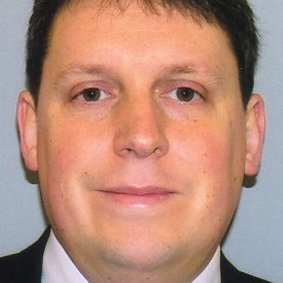‘We want to show what physician associates can do’

The whole raison d’etre of the National Physician Associate Expansion Programme is to do ourselves out of business. We’re not here for any long-term purpose. I’m an A&E consultant, and I can tell you the problem is we’re spending a lot of money on locums, we’ve got patients who need seeing, and I think PAs are part of the solution to many of the challenges we face.
But to train them takes time, you can’t train them overnight. So the only way to help in the short-term is to bring some experienced people from elsewhere. We’re also trying to ready the system for many of the PAs that are going to be produced in the UK, by showing how good PAs can be and what they have to offer.
We’ve picked four regions which have no significant PA workforce and no PA school at the moment. So we’re carefully going into places where PAs by-and-large are not established, so we can introduce the concept to places that haven’t heard of it.
I realise that sometimes we are so challenged by the business of today that it’s hard to look to what we might be doing tomorrow. But I think we have to see if this works, we wouldn’t be doing it if we didn’t think it would work, but if we could guarantee it worked we’d already be getting on with it.
So we want to publicise the programme, and we’re keen to focus on the positive aspects PAs can bring. The trouble is there are an awful lot of people who say “the answer is no, what’s the question?” We’re trying to combat that, and I understand that because it is new and it’s scary if you don’t know what’s going on.
But patients need to understand these are trained and qualified people, they’re not some kind of lesser doctor. They’re not doing what doctors do, they’re doing similar work. It’s a subtle difference but an important one. They’re trained to understand therapeutics, they will propose to a doctor “I’d like to give Mrs Jones some salbutamol for her asthma”, but we have to understand that a lot of patient interactions in primary care or hospital don’t require a prescription at the end of it.
There’s a lot of talk about social prescribing, and that’s something PAs are able to do.
Dr Nick Jenkins is director of the National Physician Associate Expansion Programme, and is deputy medical director at Warrington & Halton Hospitals NHS Foundation Trust











